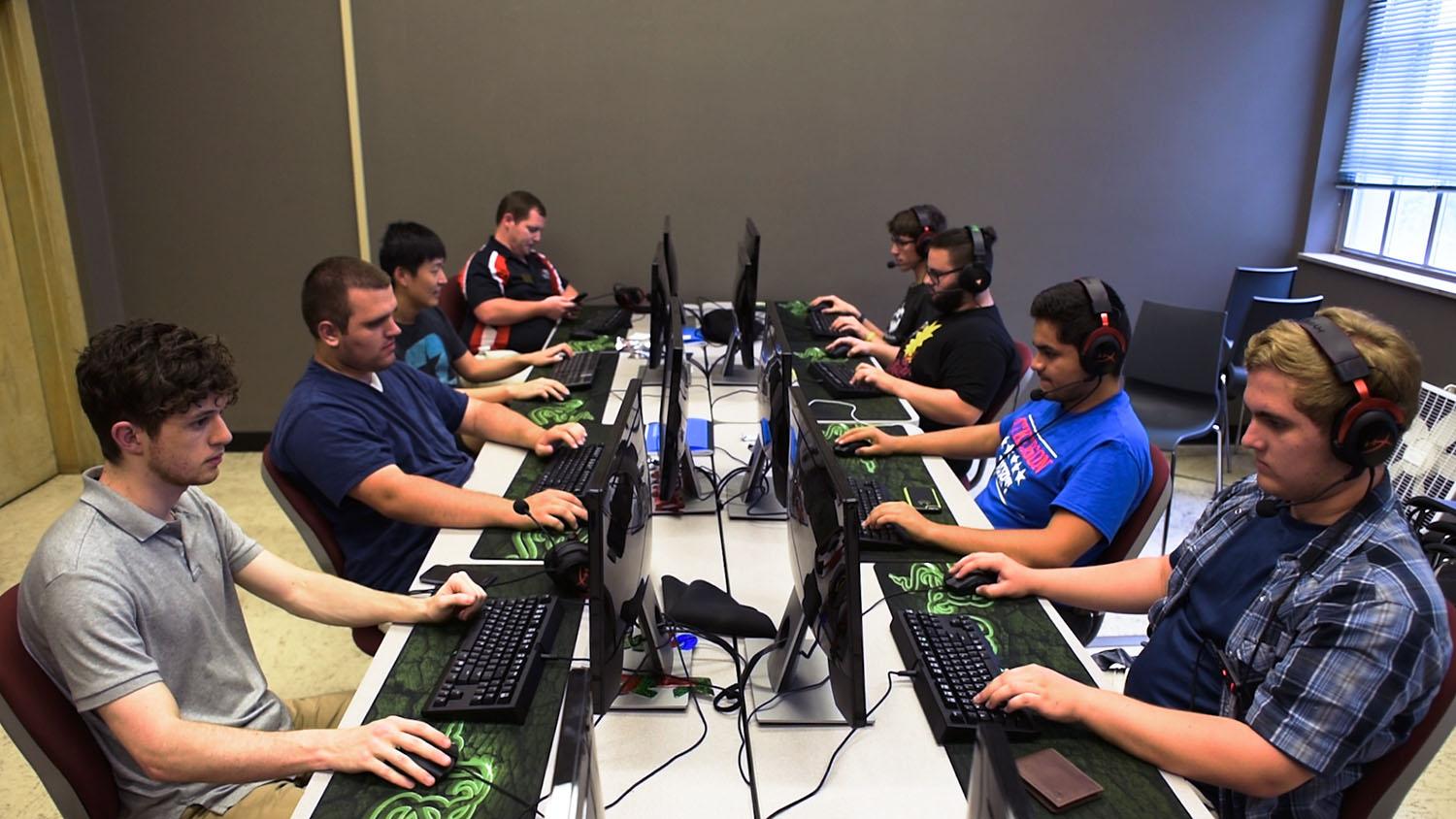Tucked away in a small room in the back of Garrett Conference Center, nearly a dozen varsity esports players clicked away at computer monitors, intently practicing the video games “Overwatch” and “League of Legends.” The room was hot.
For some reason, the air conditioning had stopped working. The players, who had every opportunity to go home, remained unbothered. Instead, they chose to stick it out for a few more lengthy matches.
This group of students comprises two small but growing WKU varsity esports teams. The program began in May 2016 when the Student Government Association signed a resolution to support the program. At the time, it was only the second competitive university esports team in the country.
“League of Legends” is a hugely popular MOBA, while “Overwatch” is a blend of the two genres. They both consist of high-energy, team-oriented matches.
Patricia Todd, chair of the Marketing department and faculty adviser for the esports teams, said the program is a necessary part of WKU’s community.
“I think there are a lot of people on campus that game,” Todd said. “It really fulfills a need that’s not there for … students that play video games to come out and get together and form friendships that way, instead of sitting in their dorm rooms behind monitors.”
However, WKU esports has run into the expected roadblocks that the lack of a gaming community poses. Recruitment of new members is one obstacle the program currently struggles with. Last semester, the League team suffered an automatic loss in a tournament match for not having enoughplayers to fill in for those who couldn’t make the date.
Bowling Green senior William Wesley is a designated support player for the League team. He said recruitment for the team has been especially difficult.
“We’ve had a few events looking for players recently,” Wesley said. “But all the players we’ve found have been ‘Overwatch’ players. So it’s been a real struggle to find ‘League’ players, and I don’t know why that is.”
Wesley said the program as a whole could use other types of talent from all over campus.
“I would love to find some students to help in the background,” Wesley said. “Maybe like management or graphic design. Anyone who’s excited just to help out, maybe, you know, put something on their resume.”
Even if gaming isn’t your thing, there’s money in it. The esports industry is a multi-million dollar one that is expected to be worth $696 million by the end of the year. Esports scholarships are offered at universities such as New York University and the University of California, Irvine. Corporations like Sony and Adidas sponsor teams the same way that Papa John’s is the official pizza sponsor of the NFL.
Although the players of WKU esports don’t currently have access to scholarships, they take advantage of having a team with common interests to improve their skills in-game.
Marrquon Bartee, a graduate student from Louisville, is coach and captain of the “Overwatch” team. He said the responsibility of being an esports coach is similar to coaching any other sport.
“From the game perspective, you have to access the potential of each one of your players,” Bartee said. “And from there, you have to take all of that data and information, and make it into a true, cohesive team.”
In order to grow the program, the group has explored several fundraising ventures. Thanks to a sponsorship from Twitch, a live streaming video platform, people with Amazon Prime accounts can activate their free Twitch Prime memberships and subscribe to WKU esports to automatically benefit the program with $2.50. The program also has a SpiritFunder campaign to fund their National Association for Collegiate eSports tournament dues. This money will ideally allow the teams to compete in the tournament Todd called “the NCAA of esports.”
Todd said the lack of popularity of esports does not mean they are insignificant.
“So it’s a thing,” Todd said. “It’s a big thing. This is not mainstream yet. People don’t understand it if they don’t play it. It’s just going to be building awareness on campus, right? Especially on campus, it’s going to be getting guys that are used to sitting behind computer screens, getting them out.”


